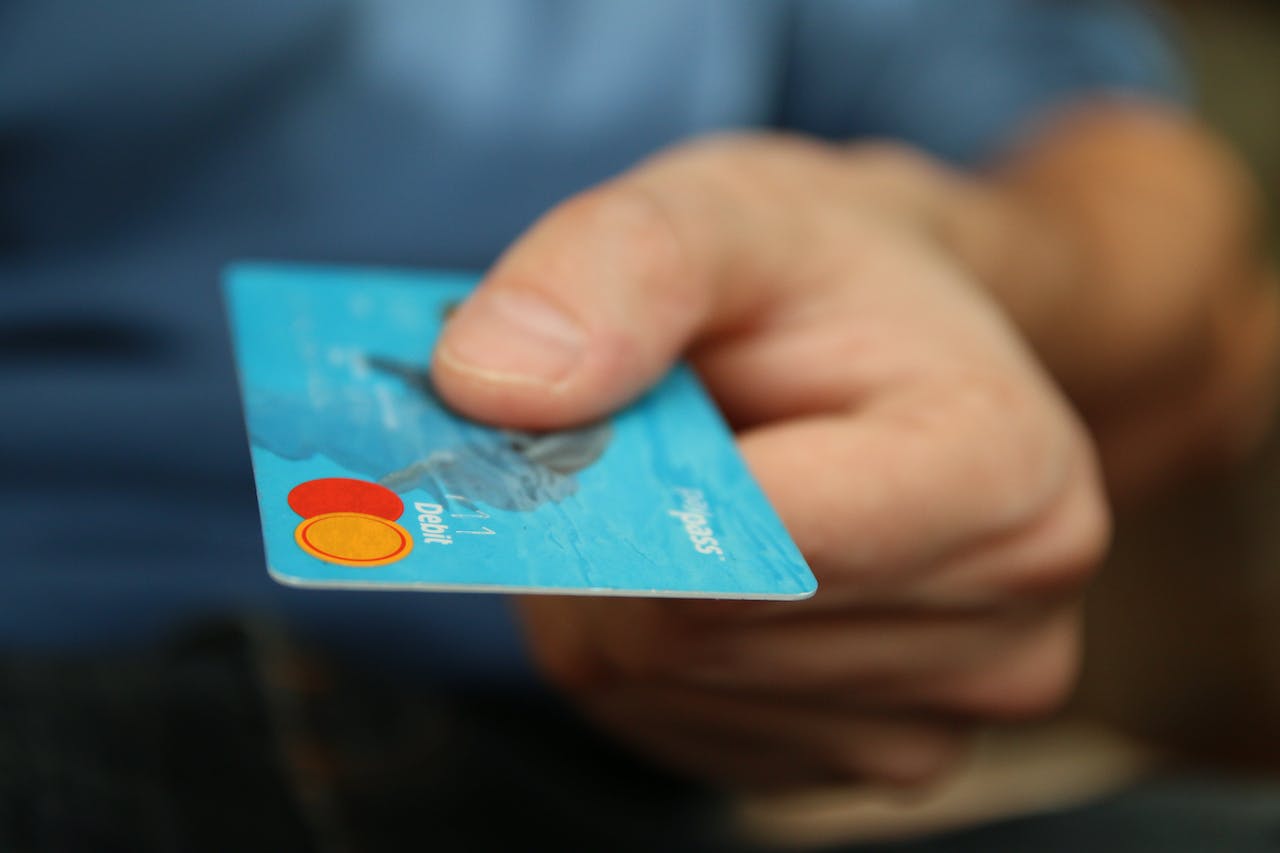Are you aware that credit cards may not be the best option when it comes to handling unexpected expenses? In this video, we’ll explore why credit cards aren’t ideal for emergencies and discover alternative solutions that can help you navigate these financial challenges. So, let’s dive right in!
Credit cards may seem like convenient tools for covering unforeseen expenses, but their high interest rates make them impractical for emergency financing. Financial advisors strongly recommend maintaining a zero balance whenever possible to avoid the burden of mounting debt.
Just paying the minimum amount on your credit card dues provides only temporary relief. The truth is, these payments barely make a dent in the actual debt. As time passes, the accumulating interest compounds daily and takes a significant toll on your wallet.
To illustrate this, let’s consider a scenario. Imagine you have a $5,000 debt on a credit card with a 22.7% interest rate, and you aim to settle it within a year. Your monthly payments would be around $469, but here’s the shocking part: you would end up paying a staggering $636 in interest over the course of the year, according to Bankrate’s calculations. Now, if you were to double the payback period to 24 months, your monthly payment would decrease to $261, but the total interest would skyrocket to a whopping $1,267—more than a fifth of the initial debt!
Renowned certified financial planner, David Haas, emphasizes that a credit card is not an emergency fund, nor is it a ticket to spend beyond your means. It’s crucial to strive to clear your credit card balance in full every month.
Additional Tips and Insights:
1. Explore Alternative Financial Tools: Consider using low-interest loans from credit unions or personal lines of credit as emergency funds instead of relying solely on credit cards. These options often offer more favorable terms compared to high-interest credit cards.
2. Evaluate Your Spending Habits: Understanding your spending patterns and creating a budget can help you better manage your finances. This awareness enables you to prioritize expenses and allocate funds to build an emergency fund while tackling credit card debt.
3. Utilize Windfalls Wisely: If you receive unexpected money, such as a tax refund or a work bonus, allocate a portion toward building your emergency fund. This infusion can significantly boost your financial safety net.
Open a Robinhood investment account as an alternative financial tool to combat high-interest rates.
Credit cards, with their soaring interest rates, might not be the optimal solution during emergencies. It’s prudent to focus on building an emergency fund, serving as your financial safety cushion. Remember, negotiation with your credit card issuer, exploring balance transfer options, and responsible debt consolidation are key strategies to navigate the challenges posed by high-interest debts.
However, beyond these immediate steps, considering alternative financial tools could significantly bolster your financial stability. One such avenue worth exploring is a Robinhood investment account. Robinhood offers a feature called Cash Management, which can provide you with a 5% annual percentage yield (APY) on uninvested cash.
By opening a Robinhood account and utilizing their Cash Management feature, your uninvested funds could earn a competitive 5% interest, surpassing the interest gained from traditional savings accounts. This can serve as an additional avenue for building your emergency fund while optimizing your money’s growth potential.
Remember, while considering investment options, it’s crucial to conduct thorough research, understand the risks involved, and make informed decisions based on your financial goals and risk tolerance.
In summary, alongside prudent debt management strategies, exploring alternative avenues like a Robinhood investment account with a 5% APY on uninvested cash can fortify your financial resilience. Strive for financial security by being proactive, informed, and strategic in managing both emergencies and long-term financial goals.
Click here to open a Robinhood investment account and start earning 5% on your cash.
Until next time, make wise choices and stay financially empowered!
FAQs on Managing Credit Card Debt and Emergency Expenses
1. How do credit cards contribute to debt from emergency expenses?
- Credit cards often have high-interest rates, making them an expensive option for covering unexpected costs. Using them for emergencies can result in long-term debt accumulation due to accruing interest.
2. Why is it risky to pay only the minimum amount on credit card bills?
- Paying just the minimum on credit card bills prolongs debt repayment and increases interest charges. It’s a temporary solution that doesn’t significantly reduce the principal debt.
3. How can an emergency fund help during unexpected expenses?
- An emergency fund acts as a safety net, providing immediate access to cash without relying on credit cards. It offers financial security by covering unforeseen costs without incurring high-interest debt.
4. What’s the downside of relying solely on credit cards for emergencies?
- Depending solely on credit cards for emergencies means accumulating high-interest debt, potentially leading to financial strain and a prolonged debt repayment cycle.
5. What strategies help reduce interest costs on credit card debt?
- Negotiating lower interest rates with credit card companies, exploring balance transfer cards with promotional rates, and consolidating debt through personal loans are effective ways to minimize interest costs.
6. How can one build an emergency fund while managing existing credit card debt?
- It’s possible to start an emergency fund even while paying off credit card debt. Allocate a portion of your income specifically toward the emergency fund while steadily addressing the credit card balances.
7. What precautions should one take with personal loans for debt consolidation?
- When considering personal loans for debt consolidation, ensure understanding of the terms and rates. Secured loans, backed by collateral, require caution to avoid risking valuable assets.
8. Can credit cards be used responsibly without accruing debt?
- Yes, using credit cards responsibly, such as paying off the balance in full each month, can help avoid accruing high-interest debt and maintain a positive credit score.
9. How do emergency funds differ from credit cards in managing unexpected expenses?
- Emergency funds offer immediate access to cash without incurring interest charges, whereas credit cards entail borrowing money at high-interest rates.
10. What’s the importance of financial planning when dealing with emergencies and credit card debt?
- Financial planning involves budgeting, saving, and strategizing debt repayment. It’s crucial for managing emergencies and preventing the accumulation of high-interest credit card debt.
Tags: credit card debt, emergency expenses, high-interest rates, financial planning, debt consolidation, personal loans, emergency fund, credit card interest, financial advice, balance transfer cards










